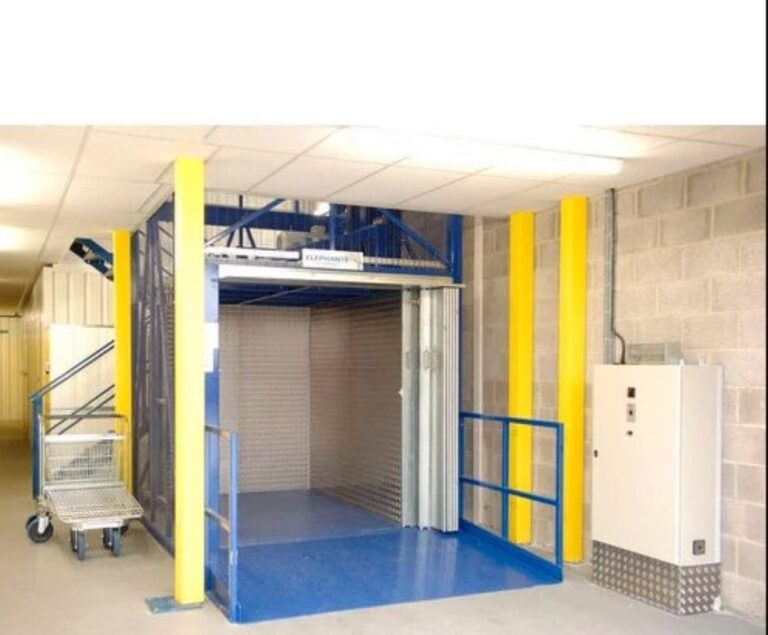Industrial lifts, also known as industrial elevators, are indispensable tools that contribute to the smooth operation of facilities, ensuring both productivity and safety.
In the world of heavy industry and manufacturing, the efficient movement of materials and personnel is paramount. Industrial lifts, also known as industrial elevators, are indispensable tools that contribute to the smooth operation of facilities, ensuring both productivity and safety. This article delves into the world of industrial lifts, exploring their diverse applications, benefits, and the key considerations when integrating them into your industrial operations.This article delves into the world of industrial lifts, exploring their diverse applications, benefits, and the key considerations when integrating them into your industrial operations.
Understanding Industrial Lifts:
Industrial lifts are specialized types of elevators designed for rugged use in demanding environments. They serve a wide range of purposes, including transporting heavy loads, facilitating personnel movement, and improving overall workflow efficiency. These versatile machines are commonly found in manufacturing plants, warehouses, construction sites, and more.
Applications of Industrial Lifts:
- Material Handling: Industrial lifts are essential for moving heavy materials within a facility. They efficiently transport raw materials, finished products, and other supplies, reducing the need for manual labor and minimizing the risk of injuries.
- Personnel Transport: Industrial lifts are also used to transport workers between different levels of a facility. This not only saves time but also improves safety by eliminating the need for climbing stairs or ladders.
- Maintenance Access: In industrial settings, routine maintenance is crucial. Industrial lifts provide access to equipment and machinery located at elevated positions, making maintenance tasks safer and more convenient.
The Benefits of Industrial Lifts:
- Enhanced Efficiency: Industrial lifts streamline operations by reducing the time and effort required to move materials and personnel. This increased efficiency can lead to higher productivity and cost savings.
- Safety: Safety is a top priority in industrial environments. Industrial lifts provide a safer means of transporting heavy loads and personnel, reducing the risk of accidents and injuries.
- Space Optimization: Industrial lifts can be customized to fit within tight spaces, making them a versatile solution for facilities with limited room for traditional conveyance systems.
- Durability: Designed for heavy-duty use, industrial lifts are built to withstand the rigors of industrial environments, ensuring long-lasting performance.
Key Considerations for Industrial Lifts:
When integrating industrial lifts into your operations, there are some essential considerations to keep in mind:
- Regulatory Compliance: Ensure that your industrial lift adheres to all relevant safety and industry regulations, such as OSHA requirements.
- Customization: Industrial lifts can be tailored to your specific needs, so work closely with the manufacturer to design a system that suits your facility.
- Maintenance and Training: Regular maintenance is essential to keep industrial lifts operating at their best. Additionally, provide training for personnel who will be operating the lifts to ensure safety.
- Budget: Consider the initial cost of purchasing and installing the lift, as well as ongoing operational expenses.
Why Industrial Lifts Are Essential for Efficiency:
- Optimized Workflow: Industrial lifts expedite the movement of goods and materials, reducing the time required to perform tasks, resulting in increased productivity.
- Space Utilization: Vertical storage and transportation solutions make the best use of available space, maximizing storage capacity and reducing the need for additional square footage.
- Safety: The use of industrial lifts minimizes the risk of manual handling injuries and accidents, as workers no longer need to climb ladders or access high shelves.
- Cost Savings: By streamlining processes and reducing manual labor requirements, industrial lifts contribute to significant cost savings in the long run.
- Compliance: Adhering to safety and industry standards, industrial lifts ensure your facility remains in compliance with regulations, avoiding potential legal issues.
Conclusion:
Industrial lifts are invaluable assets in various industrial settings, offering efficiency, safety, and versatility. By carefully selecting the right industrial lift for your needs, customizing it to fit your facility, and ensuring compliance with safety regulations, you can significantly enhance your operations while maintaining the highest standards of safety. Industrial lifts are a testament to the innovation and adaptability that modern industries rely on to thrive in today’s competitive marketplace.

